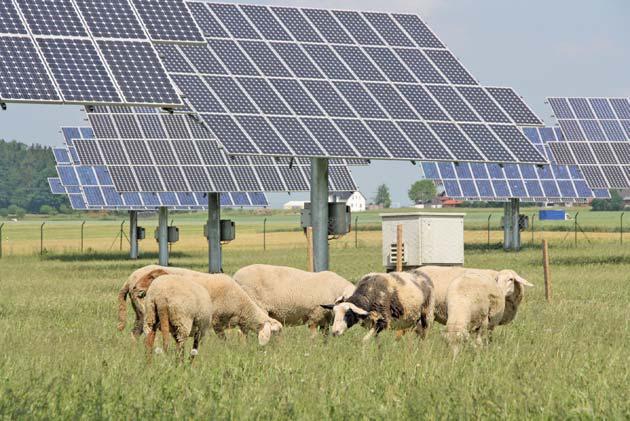Try GOLD - Free
Breaking down the principles of regenerative farming
Farmer's Weekly
|February 21, 2025
Jean Hugo, a post-graduate student at the Tshwane University of Technology, and Leon Hugo, author on environmental matters and former professor of geography at the University of Pretoria, write about the importance of regenerative agriculture for small-scale farmers, and the challenges related to making the shift.

The growing global population requires more food, but an increase in production must not come at the cost of sustainability. Large-scale, high-yield farming often leads to issues like heavy machinery compacting topsoil and disrupting soil structure. Monocropping depletes soil fertility, while pesticides not only target harmful pests but also harm beneficial organisms.
In response, there is a strong global movement advocating for a return to traditional, small-scale, and environmentally friendly farming methods that focus on restoring natural resources.
Over the past few decades, various eco-friendly farming approaches have emerged, each with its unique characteristics and techniques.
The terminology used for these initiatives varies, including conservation farming, permaculture, organic farming, integrated organic farming, regenerative farming, sustainable farming, holistic farming, and deep bed farming, among others.
The definition of each differs but all of them have the following in mind: they conserve land, water, and plant and animal genetic resources, and are environmentally non-degrading, technically appropriate, economically viable, and socially acceptable.
Regenerative farming is an overarching term encompassing various eco-friendly approaches. It is a system of farming principles and practices designed to enhance biodiversity, enrich soils, improve watersheds, and strengthen ecosystem services. Regenerative agriculture aims to capture carbon from the atmosphere and store it in soil and above-ground biomass, helping to reverse current global trends of carbon accumulation.
This story is from the February 21, 2025 edition of Farmer's Weekly.
Subscribe to Magzter GOLD to access thousands of curated premium stories, and 10,000+ magazines and newspapers.
Already a subscriber? Sign In
MORE STORIES FROM Farmer's Weekly

Farmer's Weekly
Tropical avo smoothie
Escape to the tropics with this luxurious, creamy, and vibrant smoothie! Blending rich avocado and sweet mango with zesty lime, fragrant mint, and a punch of tangy granadilla, this recipe transforms into a nutrient-packed and silky-smooth treat.
1 min
January 16-23, 2026
Farmer's Weekly
THE HITCHING POST
I am a 60-year-old white woman who loves camping, animals, the outdoors and watching sport.
2 mins
January 16-23, 2026

Farmer's Weekly
The enduring legacy of Tiyo Soga
In the 1850s, Tiyo Soga, a Xhosa man, became the first ordained black South African minister. But as Mike Burgess writes, his legacy would also be determined by his all-round intellectual abilities honed by a solid Scottish education.
4 mins
January 16-23, 2026

Farmer's Weekly
Isuzu D-Max shows single cabs can be comfortable companions
Bakkie manufacturers don't give single cabs to the media due to them generally being regarded as workhorses without the bells and whistles from fancier double cabs. The Citizen's Charl Bosch was gobsmacked when a single cab arrived for a three-month stay.
2 mins
January 16-23, 2026

Farmer's Weekly
South Africa eyes home-grown rice as ARC expands research efforts
South Africa is taking bold steps toward reducing its dependence on rice imports by exploring the viability of home-grown upland rice. Through a major research drive led by the Agricultural Research Council's Small Grain division, scientists and industry partners are testing rice varieties capable of thriving in South Africa's diverse soils and increasingly water-scarce climate. Anelisa Gusha reports.
3 mins
January 16-23, 2026

Farmer's Weekly
Spanish tortilla
Bring the authentic flavours of Spain to your table with this robust and satisfying Spanish tortilla.
1 min
January 16-23, 2026

Farmer's Weekly
New year brings marvellous new titles
Patricia McCracken, like many of us, has settled back into the grind of the new year and picked up a diverse selection of books ranging from travel, to fiction, to non-fiction and a delightful local children's adventure.
2 mins
January 16-23, 2026
Farmer's Weekly
Nitrogen 'switch' unlocks greener crops
A ground-breaking discovery by molecular biology professors Kasper Røjkjær Andersen and Simona Radutoiu at Aarhus University in Denmark offers a significant step toward developing self-fertilising grain crops, potentially revolutionising agriculture to be greener and more climate-friendly.
1 min
January 16-23, 2026

Farmer's Weekly
Sweet prospects: the current state of litchi production in South Africa
Bram Snijder, agricultural consultant and chairperson of the South African Litchi Growers' Association, spoke to Octavia Avesca Spandiel about the litchi industry embracing new opportunities, tackling challenges, implementing innovation, and reaching markets both locally and internationally.
6 mins
January 16-23, 2026

Farmer's Weekly
How AFGRI uses technology to unlock farm finance from asset to market
As modern farming becomes more capital-intensive and digitally driven, AFGRI is reinventing agricultural finance by linking technology directly to lending decisions.
5 mins
January 16-23, 2026
Listen
Translate
Change font size

